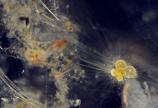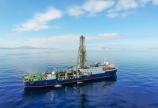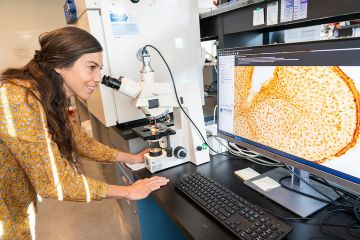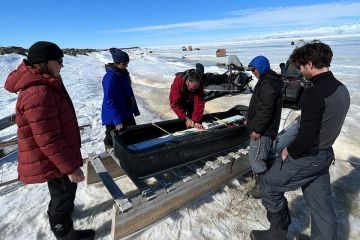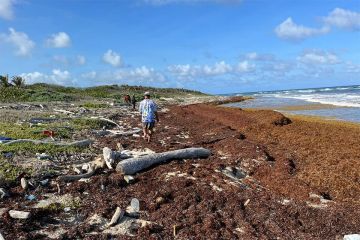Marine fossil record reveals climate change insights
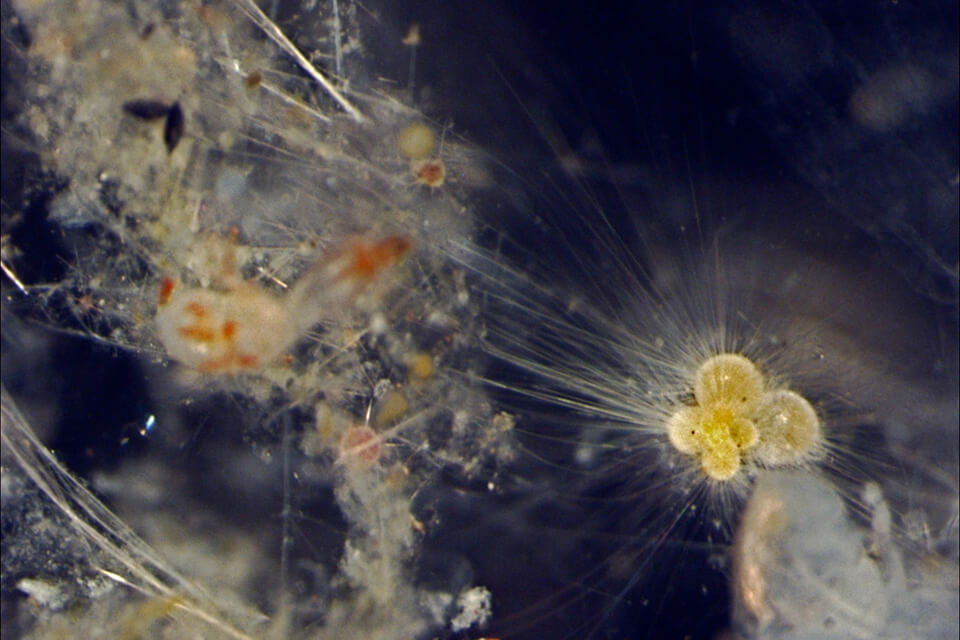
As ocean temperatures continue to rise due to climate change, marine plankton may be the newest candidate to act as an oceanic early alert system. According to a new Nature paper from University of Victoria micropaleontologist Andy Fraass and a team of international collaborators at the University of Bristol and Harvard University, an analysis of the fossil record shows that changes to community structure take place long before mass extinction occurs.
“One of the major findings of the paper was how communities respond to climate events in the past depends on the previous climate,” says Fraass, assistant professor in UVic’s School of Earth and Ocean Sciences. “That means that we need to spend a lot more effort understanding recent communities, prior to industrialization. We need to work out what community structure looked like before human-caused climate change, and what has happened since, to do a better job at predicting what will happen in the future.”
The fossil record of marine plankton is the most complete and extensive archive of ancient biological changes available to science. By applying advanced computational analyses to this archive, the researchers were able to detail the global community structure of the oceans dating back to the death of the dinosaurs, revealing changes to biogeographic patterns, and how they might connect to the climate of the time.
A key finding of the study was that during the Early Eocene Climatic Optimum, a geological era with sustained high global temperatures equivalent to today’s worst case global warming scenarios, marine plankton communities moved to higher latitudes. Only the most specialized plankton remained near the equator, suggesting that the tropical temperatures prevented higher amounts of biodiversity.
“Considering that three billion people live in the tropics, the lack of biodiversity at higher temperatures is not great news,” says Adam Woodhouse, researcher at the University of Bristol and co-lead on the paper.
This study was the first to explore how biodiversity among marine plankton groups has changed over the last 66 million years on a global, spatial scale through a single database. The Triton database, built by Woodhouse during his PhD, contains over 500,000 fossil records for planktonic foraminifera.

Next, the team plans to apply similar research methods to other marine plankton groups. While this study focused on planktonic foraminifera, there are many other microfossil groups that have important roles in marine food webs and need to be studied.
“We’re hoping to expand our research to other marine plankton groups,” says Fraass. “But more broadly, this is the real utility of geology. Geology lets us see the planet’s past, providing glimpses at potential futures—futures we should try to avoid.”
UVic is powered by climate traction. We've gained ground on clean energy transitions, climate program offerings, and sustainable operations—and that's just the beginning of positive actions ahead. Learn more about UVic’s climate programs and training, research, and campus sustainability.
-- 30 --
A media kit containing assets is available on Dropbox.
Photos
Media contacts
Nicole Crozier (Science Communications) at 250-721-8745 or scieco@uvic.ca
Jennifer Kwan (University Communications and Marketing) at 250-721-7641 or uvicnews@uvic.ca
In this story
Keywords: climate, environment, oceans, research, international, partnerships, sustainability, climate action, sdg13, sdg14, sdg17
People: Andy Fraass







